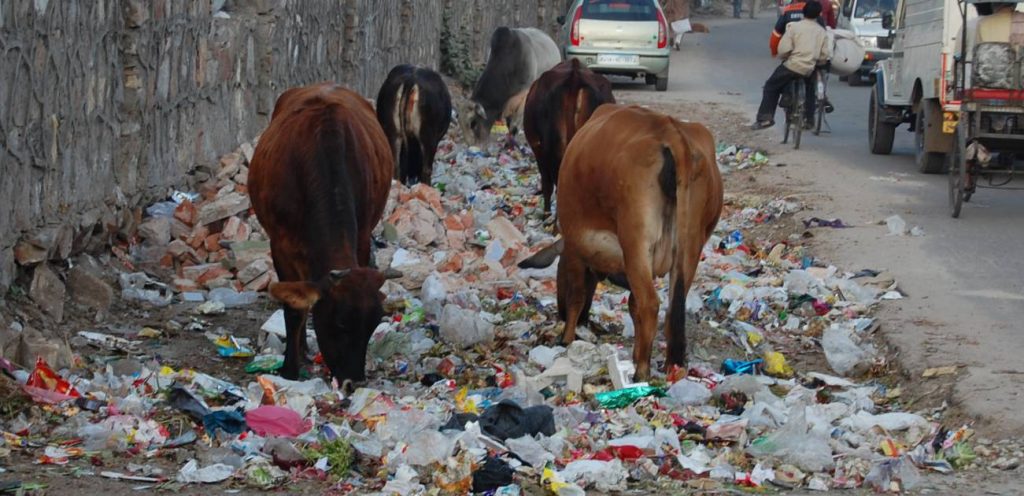Waste management is one of the main challenges facing humanity and the planet. Industrial and economic growth has led to a significant increase in solid waste production, particularly in densely populated urban areas. Global municipal waste production is estimated to reach 1.5 billion tons and could rise to 2.3 billion tons by 2025. This problem not only affects the environment, but also has serious implications for public health and the economy.
Managing waste effectively is crucial to avoiding long-term environmental and economic disasters. However, the reality is that much waste ends up in landfills or pollutes the environment. Therefore, it is essential to explore new ways to manage waste sustainably and efficiently.

The New Perspective: Waste as a Business Opportunity
Recently, there has been a significant change in the way waste is perceived by industries. Instead of being just an operational cost, waste is beginning to be seen as a business opportunity. The circular economy is consolidating itself as a global trend, and in Brazil, the adoption of this approach is gaining momentum.
Allonda CEO Leo Cesar Melo highlights the importance of transforming waste management into a business opportunity: “Waste management is a highly relevant topic for the industrial sector, as it is undergoing a transition phase worldwide. Waste is no longer an operational cost and is now generating new business opportunities. The circular economy is here to stay and needs to become established in Brazil.”
Main Challenges in Waste Management
Waste management faces several challenges that need to be overcome to improve efficiency and sustainability. Some of the main challenges include:
- Waste Diversity: Industries deal with a wide variety of wastes, each with its own characteristics and treatment needs. This requires customized and flexible solutions.
- Recycling Infrastructure: Many regions still lack adequate infrastructure for waste collection, separation and recycling. The lack of adequate facilities can limit the effectiveness of management practices.
- Regulation and Compliance: Businesses need to adapt to ever-changing regulations and ensure they are compliant with environmental standards. This can be a significant challenge, especially for industries with complex operations.
- Education and Awareness: Awareness of the importance of waste management is still limited in many sectors. Investing in education and training is crucial to ensure that everyone involved understands their responsibilities.
Business Opportunities in Waste Management
Despite the challenges, waste management offers several business opportunities. Here are some promising areas:
- Recycling and Reuse: Companies that invest in recycling technologies and reuse processes can reduce their costs and create new revenue streams. Recycling valuable materials, such as metals and plastics, can generate high-value products.
- Sustainable Product Development: Creating products from recycled waste is a growing trend. Companies that develop sustainable products can meet the demand for environmentally responsible solutions and gain a competitive edge.
- Consulting and Management Services: Specialist waste management consultancies are becoming increasingly sought after. These companies help other organizations implement effective management practices and optimize their waste processes.
- Innovation and Research: Investing in research and development for new waste management technologies can lead to the creation of innovative and efficient solutions. Continuous innovation is essential to meet ever-evolving challenges.
Allonda Research: A Map of Opportunities
Allonda, an engineering company focused on sustainable solutions, is conducting market research to better understand how Brazilian industries are dealing with waste management. The research will involve sectors such as agribusiness, food and beverage, construction, packaging and many others. The goal is to identify the main challenges and opportunities faced by industries and provide an updated overview of waste management practices.
Leo Cesar Melo explains: “This research is a way of identifying the main difficulties and opportunities faced by industries in adopting effective practices. It is essential to understand the demands and gaps in the market in order to seek solutions that increase the efficiency of companies.”
The research results will be made available in e-Book format, providing a comprehensive and detailed overview of waste management and associated business opportunities.
Towards a Sustainable Future
As industries face the challenges of waste management, it is crucial to adopt a proactive and innovative approach. Turning waste into a business opportunity not only contributes to environmental sustainability, but can also generate significant economic benefits. By implementing effective practices and embracing the circular economy, it is possible to create a more sustainable and responsible future.
Investing in waste management is not only an environmental responsibility, but also a promising business opportunity. Allonda’s research and emerging initiatives highlight the importance of addressing key challenges and exploring new solutions to effectively manage waste. The future of waste management is here, and it’s time to seize the opportunities and build a more sustainable world.
Check out other interesting facts about recycling clicking here.
Learn how to make art by recycling, Click here.



